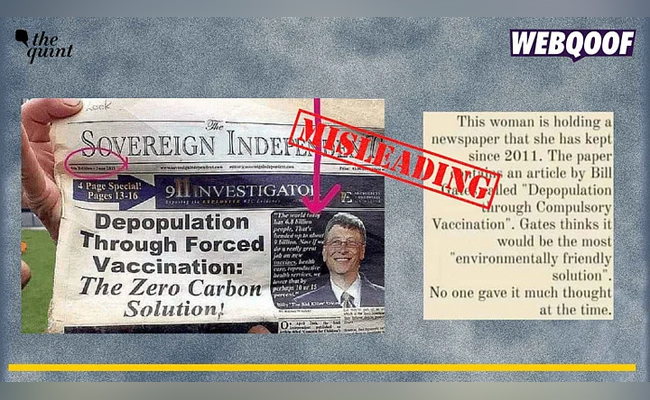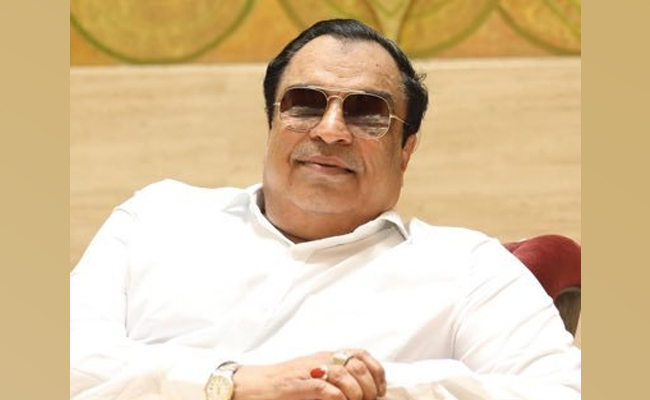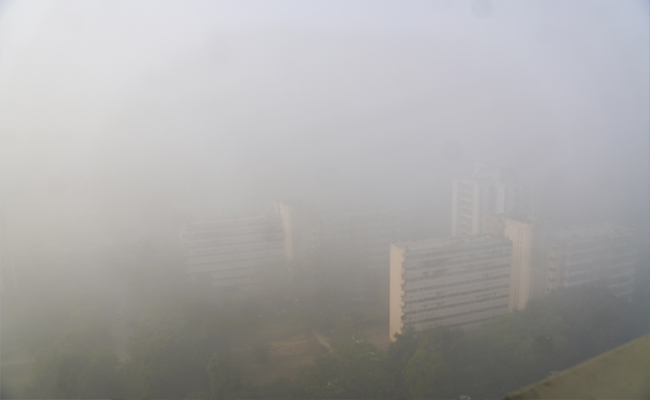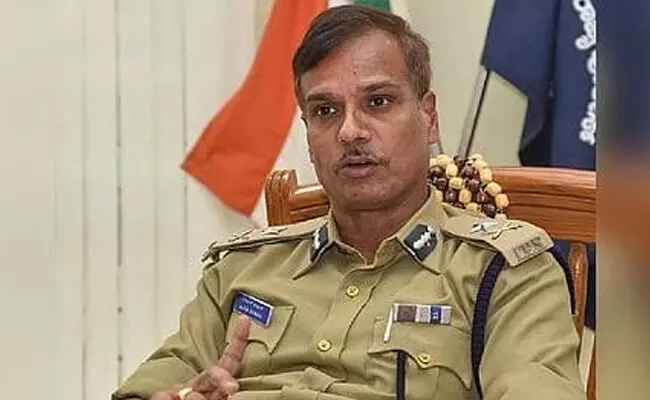A photo showing a newspaper, 2011 edition of Ireland-based newspaper The Sovereign Independent, claiming that Microsoft co-founder Bill Gates wants to reduce the world population through "forced vaccination" has resurfaced online.
The front page headline says, “Depopulation Through Forced Vaccination: The Zero Carbon Solution”.

An archive can be seen here.
(Source: Threads/Screenshot)
(Archives of similar claims can be seen here and here.)
What's the truth?: This claim is false. This article incorrectly suggests that Gates wants to depopulate the world through vaccinations.
-
It links this to Gates' speech in 2010, wherein he stated that vaccinations can reduce child mortality, which in turn will lead to reduced birth rates, population growth and lesser carbon emissions
How did we find out the truth?: We performed a keyword search and found that the viral cover image is of the fourth edition of the Ireland-based newspaper, The Sovereign Independent, which was published in 2011.
-
According to a note by its editor Dave Derby, the first edition was published in 2009. However, this newspaper is not available online now.
-
We noticed that the paper often shared conspiracy theories in 2011.
What did the article claim?: We accessed the archived version of this newspaper's June 2011 version, which can be seen here.
-
It mentioned an old quote from Gates about the population in the wrong context.
-
Plus, the article was attributed to Rachel Windeer.
-
The quote was picked up from a 2010 TED Conference (transcript can be seen here), which reads, “The world today has 6.8 billion people. That’s headed up to about nine billion. Now, if we do a really great job on new vaccines, health care, reproductive health services, we could lower that by, perhaps, 10 or 15 percent.”
-
But in this speech, “Innovating to Zero”, Gates discussed ways the world could bring down carbon emissions and suggested that one of the ways was by reducing population growth through improving healthcare.
-
This statement was picked up by the newspaper and shared out of context. In reality, Gates suggested that population growth can be reduced by 10 to 15 percent, so he was not talking about the population itself.
-
Moreover, he also points out other factors, such as the services used by every individual, which require heavy energy and carbon emissions.
Conclusion: An old newspaper carrying a misleading claim about Bill Gates calling to reduce population by using vaccination has gone viral again.
Let the Truth be known. If you read VB and like VB, please be a VB Supporter and Help us deliver the Truth to one and all.
Kalaburagi: Two years after being expelled from the Janata Dal (Secular), former minister C.M. Ibrahim has announced that he will launch a new regional political party in Karnataka on January 24, reported Deccan Herald.
Speaking at a meeting organised by the Nava Karnataka Nirmana Andolana in Kalaburagi on Sunday, Ibrahim confirmed the birth of the new party.
The 77-year-old politician stated he would soon be meeting with other like-minded individuals to choose a symbol for the party.
ALSO READ: Veteran Congress leader Shamanuru Shivashankarappa laid to rest with full state honours
Ibrahim emphasised that the organisation would be guided by the principles of 12th-century social reformer Basavanna and the architect of the Indian Constitution, Dr. B. R. Ambedkar.
A veteran politician, Ibrahim served as Union Civil Aviation Minister during the tenure of H.D. Deve Gowda as Prime Minister and later headed the Karnataka unit of the Janata Dal (Secular). He was expelled from the JD(S) in 2023 on charges of anti-party activities.
His exit from the party followed sharp differences over the JD(S) decision to ally with the Bharatiya Janata Party (BJP). As the then state president of the JD(S), Ibrahim had publicly criticised the alliance, claiming it was finalised without his knowledge. He had also reportedly convened meetings of his supporters and expressed support for the INDIA bloc.





